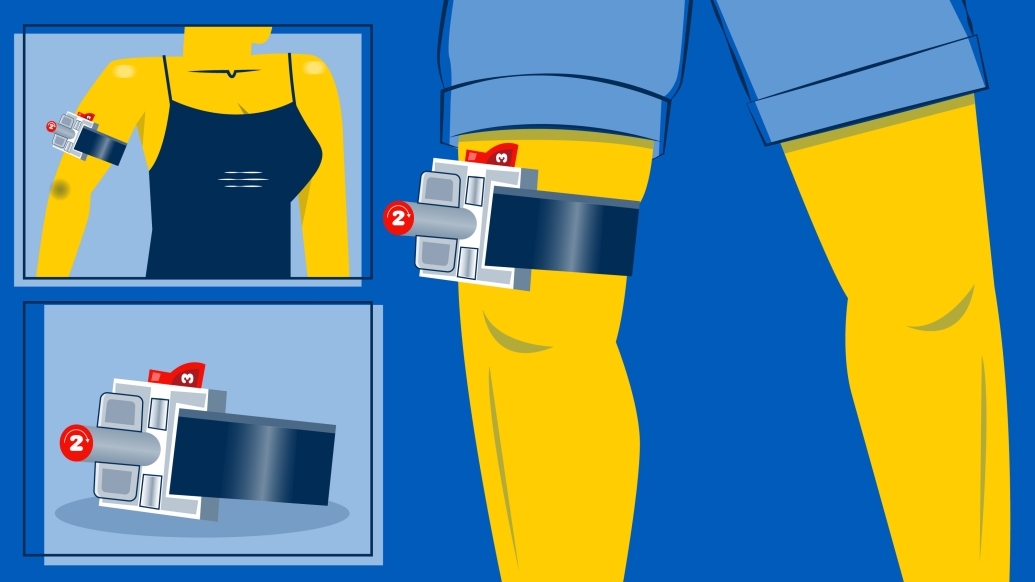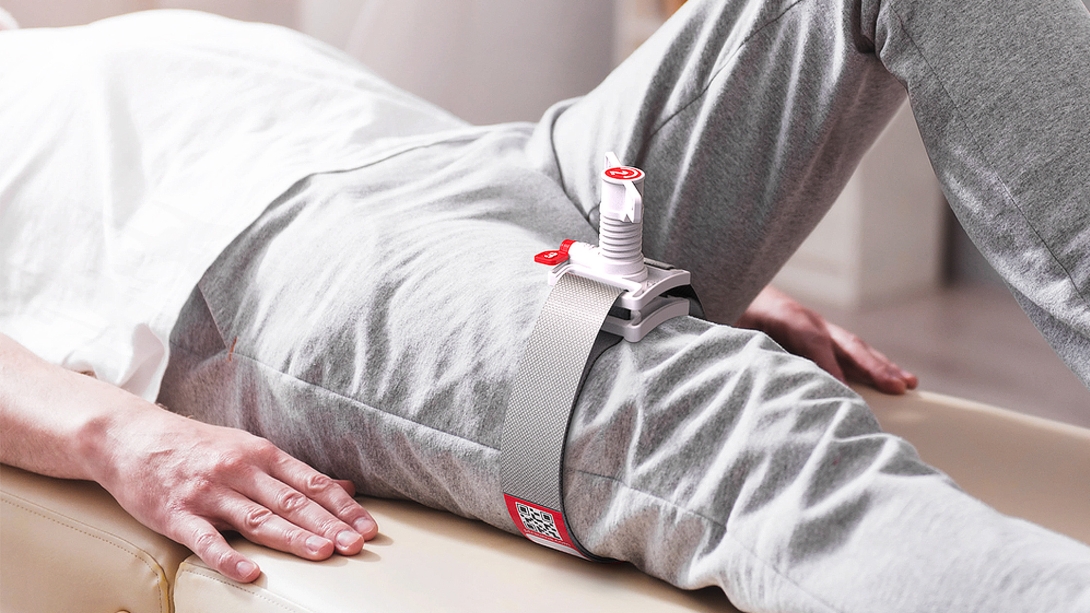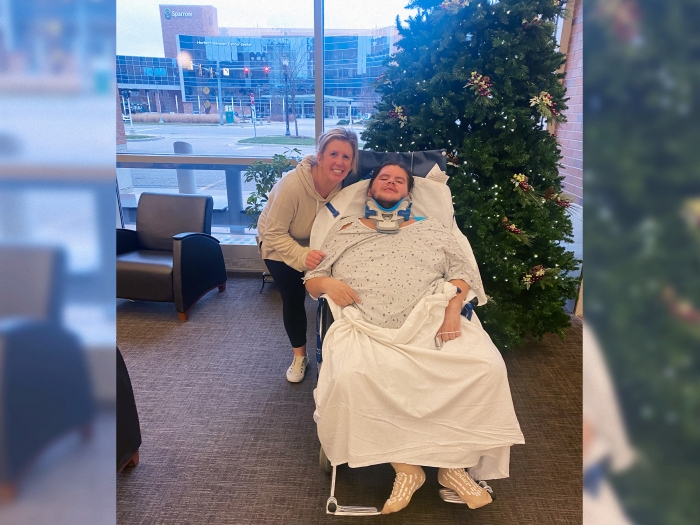Uniquely designed tourniquets help support emergency care providers at every level in Ukraine
5:00 AM
Author |

When Russia’s War on Ukraine began, individuals around the world mobilized to support the Ukrainian people. Among those offering help is a group from Michigan Medicine’s Max Harry Weil Institute for Critical Care Research and Innovation.
The Weil Institute, partnered with Precision Trauma LLC, was developing tourniquets for years in response to the Stop the Bleed Campaign, which began after the 2013 Boston Marathon bombing. In addition, the two were working to create tourniquets that were easier to use and more comfortable after application.
They soon found another great need for the “Turn-I-Kit" devices they created.

“We were just gearing up to make these available for public use and training, then the Ukraine war happened,” said Kevin Ward, M.D., executive director of the Weil Institute and a veteran himself. “There’s not a clear battlefield in Ukraine, so civilian centers and civilian populations are now part of the battlefield landscape.”
The Weil Institute and Precision Trauma have now donated 780 of their Turn-I-Kits to Ukraine. Turn-I-Kits meet all requirements of standard military-issue tourniquets and are fit to be used in hospitals or at various levels of care on the battlefield.
They are designed for intuitive use for those who have little to no training – they're slightly larger than a regular tourniquet and have a simple turnkey knob for easier tightening. Standard tourniquets can also be quite painful to apply because of their narrow bands. The Turn-I-Kits are uniquely designed with a significantly wider band, which reduces that discomfort.
“I have a lot of admiration for the Ukrainian people and their military. It’s an honor and a privilege to contribute in some small way to their fight to maintain their freedom.”
- Kevin Ward, M.D.
“Think of an octogenarian trying to apply a tourniquet to their spouse or a child – this is what we had in mind when designing these,” said Ward. “People in Ukraine are seeing explosions, building collapses, and gunshot wounds by high velocity military rifles. These create quite a bad wound. There are lots of opportunities to use these tourniquets to save a life in these settings.”
Ward encourages everyone to learn how to use tourniquets, even if the chances of having to use one are rare. For now, he is grateful that more Ukrainians who need tourniquets will have them.
“Ukraine is experiencing significant civilian casualties because of attacks on civilian population centers. In addition, much of the Ukrainian army is civilian - these are people who signed up with maybe limited experience and are volunteering to protect their country,” Ward said. “I have a lot of admiration for the Ukrainian people and their military. It’s an honor and a privilege to contribute in some small way to their fight to maintain their freedom.”
Disclosures: Ward is an inventor of the Turn-i-Kit and has equity in Precision Trauma, LLC.

Explore a variety of health care news & stories by visiting the Health Lab home page for more articles.

Department of Communication at Michigan Medicine
Want top health & research news weekly? Sign up for Health Lab’s newsletters today!





